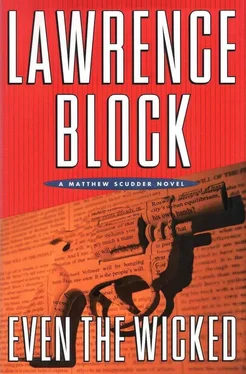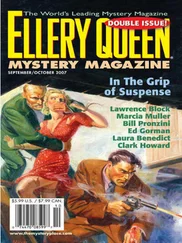That would have been natural enough, because his brief essay started off as a spirited defense of freedom of the press. He’d said the same things before, in response to having been given a spot on Will’s list, going on about a critic’s profound responsibilities to his conscience and his public. I might very well have decided I didn’t have to listen to all that again.
He’d used up the greater portion of his 850 words before he got to the point. The rest of his column was given over to a review of a dramatic production, but this particular show was staged neither on nor off Broadway but all over town. He reviewed Will, and he gave him a bad notice.
“It is customary but by no means imperative,” he wrote, “to revisit a long-running show after a substantive change in the cast. When the original production was essentially a star vehicle, such revisits are almost always disappointing. And this is certainly true in the case of what, were it mounted as a Broadway musical, some producer would surely entitle Will! complete down to the nowobligatory exclamation point.
“In its first incarnation, Will! was unquestionably good theater. With the late Adrian Whitfield quietly elegant in the title role, the production had a powerful grip on its audience of eight million New Yorkers. But what succeeded initially as brilliant tragedy (albeit not unleavened by its comic moments) has come back to us as farce, and a farce with all the zest and sparkle of a fallen soufflé.
“With Whitfield’s death and unmasking, his understudy has emerged from the wings — and has fallen flat on his face. Will Number Two, as we seem to be calling him, is a man of bombast and empty rage. We take this pale copy seriously only because we remember the original.
“No more. ‘You’re only a pack of cards,’ Alice said, scattering her adversaries to the four corners of Wonderland. I say the same to this craven who drapes himself in the fallen Whitfield’s garb. No longer will I go about guarded and live as if under siege. No longer will one seat of my two on the aisle be taken up by a burly chap who’d much rather be home watching ‘NYPD Blue.’ I’m taking my life back, and I can only recommend the same course of action to the current Will. Close the show, strike the set — and get a life.”
Kilbourne had made his decision on his own, but he’d let the cops know about it before his oped piece informed the rest of the world. While they’d advised against it, nobody tried very hard to talk him out of it. They’d reached much the same conclusion he had. Copycat killers can be as dangerous as the original, but it was beginning to look as though Will wasn’t a copycat killer after all. He was a copycat letter writer. He would still be pursued, and eventually caught, but there was a lot less urgency attached to the matter.
So Tuesday night, while I was playing hearts with a college student and a confessed murderer in the kitchen of a ranch house in Lakewood, Ohio, Regis Kilbourne was watching a preview performance of the new P.J. Barry play, Poor Little Rhode Island. His companion was a young woman named Melba Rogin, who looked like a model but was in fact a fashion photographer. After the performance the two had drinks and a light supper at Joe Alien’s, then took a taxi to the brownstone in Chelsea where he had a floor-through apartment on the parlor floor.
At 1:15 or thereabouts he suggested she stay over, but she had an early shoot and wanted to get home. (One of the tabloids had her speculating on what would have happened if she’d stayed the night. Would Kilbourne still be alive? Or would she have died along with him?) He walked to Seventh Avenue with her and put her in a cab headed downtown — her loft was on Crosby Street — and the last she saw of him he was on his way home.
He evidently went straight back to his apartment, and sometime within the next hour or two he had a visitor. It appeared that either Will had managed to get hold of a key or Kilbourne let him in, as there were no signs of forced entry. Nor did Kilbourne seem to have resisted his killer. He’d been struck on the head with some heavy object, the blow delivered with enough force to have very likely rendered him unconscious. He’d either fallen to the floor or been laid out there, facedown. Then the killer stabbed him in the back with a Sabatier carbon-steel kitchen knife, which had been subsequently removed from the corpse, washed in the sink, and placed in the wire basket to dry.
(“Will’s probably not a chef,” Elaine told me. “You have to hand-dry knives like that. They’re not stainless, and they’ll rust. A chef would have known that.” Maybe he knew, I said, and didn’t care. A chef would have cared, she said.)
I don’t know that the knife had time to rust, but I do know there were traces of blood still on it, which nailed it down as the murder weapon. There were no prints on it, though, or prints other than Kilbourne’s and Melba Rogin’s anywhere in the apartment.
Kilbourne was found fully dressed, wearing the slacks and sweater he’d donned to put Melba in a cab. (She said he’d worn a brown suede baseball jacket as well, and that garment had been found slung over the back of a chair.) Either Will had arrived before his victim had gone to bed, or Kilbourne had dressed again in the same clothes before answering the door. According to Melba, he’d been wide awake when she left him, so he might have stayed up to read or watch television, or even to write his review.
If he’d done any writing, he’d left no sign of it. He still used a typewriter, an ancient Royal portable that evidently had some sort of totemic status in his eyes. There was no work-in-progress in his typewriter, no notes alongside it. Some reporter asked Melba Rogin how he’d liked the play — he’d probably have asked the same question of Mary Lincoln — and she claimed not to know. According to her, he would never say anything about a play until he’d written his review. “But I don’t think he loved it,” she admitted.
That opened up a new vein of speculation. Some wit got his name in Liz Smith’s column by theorizing that Kilbourne had hated the play and written a withering review, and that his late-night visitor was the playwright himself, P.J. Barry, who’d struck down his tormentor before taking home the offending review and consigning it to the flames. “But I know P.J. Barry,” Smith wrote, “and I’ve seen Poor Little Rhode Island, and I can no more imagine P.J. doing such a thing than I can believe anyone could find a bad word to say about his play.”
There were no calls to or from Kilbourne’s apartment around the time the murder would have occurred, no reports of strangers entering or lurking around the brownstone. Sooner or later, though, they would turn up a witness, someone who’d seen someone coming or going, someone who’d heard a shout or a cry, someone who knew something.
It was just a matter of time.
Toward the end of the week, I got a call from Ray Gruliow. His had been one of the names I’d given to William Havemeyer, and Hard-Way Ray had agreed to represent him. “The poor son of a bitch,” he said. “He’s the last person you’d figure to commit murder. It’s not my kind of case at all, you know. He’s not poor, he’s not black, and he hasn’t tried to blow up the Empire State Building.”
“He’ll ruin your image.”
“Right, he’ll unbesmirch it. You know, if it weren’t so clearly contrary to his own wishes, I’d kind of like to try the case. I think I could get him off.”
“How, for God’s sake?”
“Oh, who knows? But you could start by putting the system on trial. Here’s a poor mutt who works hard all his life, never saves a dime, and his company shows its gratitude by forcing him out. Then you’ve got his wife’s death, years of pain and suffering, all of which can’t help but impinge on his emotional state. Of course the first thing I do is get that confession ruled inadmissible.”
Читать дальше












